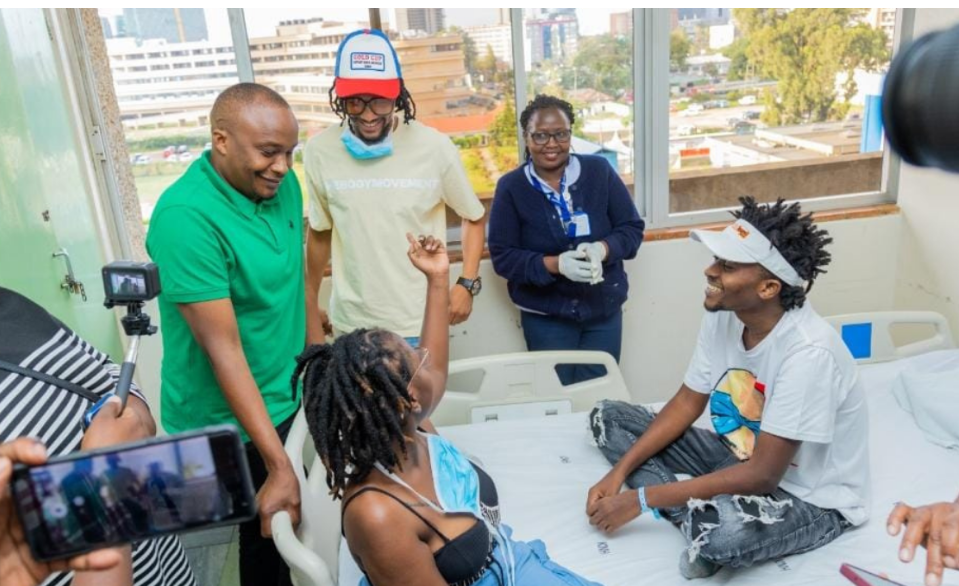Peter Mwangi, famously known as Miracle Baby, has once again become a subject of public discussion amidst conflicting reports surrounding the promised medical assistance from President William Ruto.
President Ruto captured headlines on March 5th with his commitment to covering Miracle Baby’s medical expenses and organizing his transfer to Kenyatta National Hospital for further treatment. This gesture was widely welcomed with relief and gratitude, considering the widespread attention drawn to Miracle Baby’s health challenges.
However, recent updates from US music promoter Bernice Saroni have revealed a persistent need for financial aid. Saroni disclosed a necessity of Sh135,000 per day for Miracle Baby’s home nursing care, in a TikTok video posted on her account on March 20, 2024. According to Saroni, Miracle Baby’s partner, Carol Katrue, reached out for assistance, stating that they lacked funds even for basic medical supplies such as urostomy bags. Contrary to expectations, they claimed that President Ruto was not providing the support as previously assumed. Consequently, Saroni and Katrue organized a live show, raising Sh67,000 to aid Miracle Baby’s medical expenses. However, the ongoing need remained pressing, requiring Sh135,000 every three weeks for nursing care and supplies.
Former Starehe MP Charles Jaguar, who had been instrumental in advocating for Miracle Baby’s aid, shared insights into the situation. Despite efforts to secure assistance from President Ruto, Jaguar revealed that Miracle Baby declined admission to Kenyatta National Hospital. Despite arrangements made by the President, including Ksh300,000 for home care and transportation via ambulance, Miracle Baby opted to leave the hospital after just an hour, despite being offered a private room with specialized daily checks and free care.
Jaguar expressed frustration over the situation, questioning the next steps and the President’s response, particularly given his personal involvement in facilitating aid for Miracle Baby. He pondered on the challenges of progressing when significant opportunities for assistance are rejected.
In summary, conflicting reports and challenges surrounding Miracle Baby’s medical support have once again brought attention to the complexities of providing aid and addressing healthcare needs effectively.



